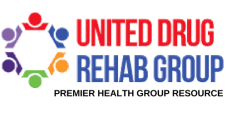The Role of Nutrition in Addiction Recovery
The Role of Nutrition in Addiction Recovery
Recovering from an addiction is an incredibly difficult process. A common misconception regarding addiction recovery is the belief that you shouldn’t restrict your diet. The reasoning is relatively simple; don’t worry about small indulgences when you are trying to overcome a much bigger issue. While this approach may sound credible, research indicates that carefully monitoring your nutrition is even more important for those recovering from an alcohol or drug addiction. Studies show that nutritional education is an important component of recovery, and that programs that incorporate nutrition have better outcomes than those who do not.
The first thing to consider in terms of your body’s nutritional needs is the damage that addiction has inflicted. The long term consumption of drugs or alcohol can have serious physiological ramifications, including nutritional deficiencies, gastrointestinal complications and appetite changes. Many people readily admit that while they were using, obtaining drugs or alcohol took precedence over proper nutrition. Additionally, there are certain substances that can cause a person to feel full, when in reality they have eaten little if anything. Drugs and alcohol can also interfere with the body’s digestion. This means that even if the person does eat, the drugs in their system may prevent them from appropriately absorbing nutrients. Given the serious dietary issues that addiction can cause, proper nutrition should be a priority for all recovering addicts.
During recovery, many people struggle with depression and lack of energy. This is especially true during the initial stages of recovery. Adequate intake of nutrients provides increased energy, as food is the body’s fuel. Proper nourishment can also significantly improve your mood and overall sense of well-being. Here at United Drug Rehab, we ensure to provide proper nutritional needs to all of our clients. Certain foods have been found to increase the production of important neurotransmitters. Foods that are high in protein, for instance, provide your body with the necessary amino acids to make neurotransmitters, such as serotonin. Serotonin levels are largely responsible for regulating mood, emotion, behavior, sleep, appetite and memory. Increased serotonin production also helps to improves impulse control, which is vital for successful addiction recovery. Amino acids can help repair brain chemicals that have been damaged by drug use. Normalizing these brain chemicals can help reduce cravings and prevent relapse.
The combination of biochemical changes and poor dietary choices commonly seen with substance abuse can wreak havoc on the body. Proper nutrition plays an important role in repairing damage to the organs and tissues. Nutrient-rich foods help restore proper function to damaged organs and body systems, such as the gastrointestinal and endocrine systems. Foods rich in complex carbohydrates can improve gastrointestinal health, provide steady energy and encourage regular waste elimination. Proteins and amino acids help repair tissues, rebuild muscle and strengthen the immune system. Dehydration is common during recovery, it is essential to ensure proper fluid intake.
It is important to make gradual modifications rather than trying to change your eating habits overnight. Implementing small changes in your diet will result in more permanent changes and decrease the risk of relapse. Meal regularity is useful both in establishing new habits and in supplying a steady supply of energy. If possible, caffeine and sugar should be eliminated from your diet. Simple carbohydrates should also be avoided when possible. Try to incorporate low-fat, high-protein foods into your diet. Eat as many fruits and vegetables as possible, as they contain many of the vitamins and minerals that your body needs. Depending on nutritional deficiencies present, it may be beneficial to supplement a healthy diet with vitamins and minerals. Recovering addicts commonly present with deficient levels of B-complex vitamins, iron, zinc, calcium and potassium.



